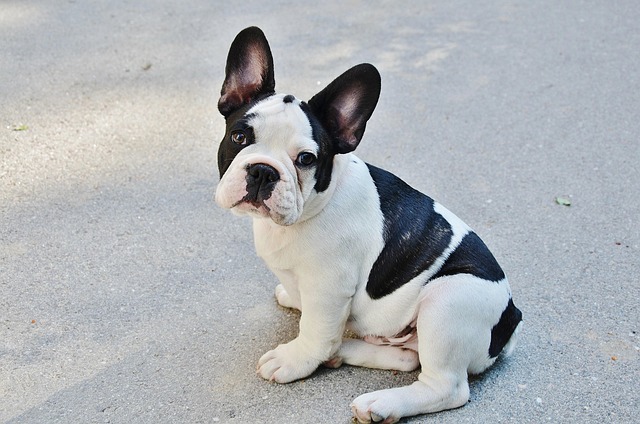
What is glaucoma in a dog?
You might notice your dog squinting more at mealtime or avoiding bright sunlight—these small changes could be early signs of a serious eye condition.
In the life of raising pets, we always hope to provide our furry children with the best everything, especially in terms of diet. Milk, as a nutrient rich beverage, often leaves owners confused: can pet dogs drink milk? This question may seem simple, but it involves the digestive and physiological characteristics of pet dogs as well as the nutritional content of milk, which requires us to explore in depth.
From the perspective of the digestive system characteristics of pet dogs, they have significant differences from humans. During the long-term evolution process, pet dogs mainly rely on meat and specific foods as their staple food, and their digestive system is more adapted to high protein and high-fat foods. Moreover, after weaning, the secretion of lactase in the body of most pet dogs gradually decreases. Lactase is a key enzyme that breaks down lactose in milk. When lactase is insufficient, pet dogs find it difficult to digest lactose in milk. This is like some lactose intolerant humans who experience gastrointestinal discomfort after drinking milk, and the same goes for pet dogs. When pet dogs consume milk, lactose cannot be fully digested and absorbed, and will be decomposed and fermented by bacteria in the intestine, producing a large amount of gas and acidic substances, leading to digestive problems such as bloating, diarrhea, and vomiting in pet dogs. Watching the once lively dog wilting and vomiting after drinking milk, the owner's heart couldn't help but feel heartbroken.
Looking at the nutritional content of milk, although it is rich in nutrients such as protein, calcium, and phosphorus, these nutrients may not fully meet the special needs of pet dogs. For example, the protein in milk is mainly casein and whey protein, while pet dogs need animal protein more. In contrast, protein in meat is more suitable for their body needs. Moreover, there is a difference between the calcium phosphorus ratio in milk and the optimal ratio required by the pet dog's body. Long term consumption of large amounts of milk may affect the normal development of the pet dog's bones.
However, not all pet dogs should absolutely not drink milk. Some pet dogs do not show obvious discomfort symptoms after drinking a small amount of milk. This may be due to significant individual differences, as they still retain a certain amount of lactase in their intestines, or they have gradually adapted to the ingredients in milk. However, even so, we cannot take it lightly. Occasionally feeding a small amount is still acceptable. If milk is used as a daily drink for pet dogs, there are still health risks.

In real life, we often hear stories about pet dogs drinking milk. Some owners feel sorry for their dogs and think that milk is nutritious, so they give their dogs a lot of milk to drink. As a result, their dogs quickly develop gastrointestinal problems, vomiting and diarrhea, and they go to the pet hospital for injections and medication. The owners feel both sorry and self blame. Some owners try to give their dogs milk by feeding them a small amount first, observing their reactions, and only occasionally giving them a little after they find that their dogs are not uncomfortable. This way, the dogs can enjoy the delicious milk without harming their health.
If the owner really wants to supplement some dairy products for their pet dog, they can choose pet specific goat milk powder. The nutritional composition of sheep milk powder is closer to that of pet dog breast milk, and the lactose content is lower. Most pet dogs can digest and absorb it well. Sheep milk powder also contains rich vitamins, minerals, and probiotics, which are helpful for the intestinal health and immune enhancement of pet dogs. Watching the dog happily drink goat milk powder and grow strong, the owner will also feel extremely gratified.
It cannot be generalized whether pet dogs can drink milk or not. Although milk contains certain nutrients, due to the digestive system characteristics of pet dogs and the properties of milk itself, most pet dogs are not suitable for drinking large amounts of milk. As owners, we should fully understand the physical needs of our pet dogs and use scientific pet care knowledge to take care of them. When trying new foods for pet dogs, be cautious and observe their reactions by feeding them in small amounts first. Only in this way can we let our pet dogs grow up healthy and happy under our care, becoming the warmest and most loyal companions in our lives, accompanying us through one beautiful day after another.

You might notice your dog squinting more at mealtime or avoiding bright sunlight—these small changes could be early signs of a serious eye condition.

Let’s set the scene: It’s a sweltering Phoenix afternoon—105°F outside—and you rushed your 2-year-old Lab mix, Cooper, on a quick walk to “get it over with.”

Let’s get real: You’re in your Miami apartment, watching your 3-year-old Corgi, Loki, struggle to climb the stairs to your second-floor unit.

Many dog owners brush off occasional scratching as just “dog behavior,” but persistent itching often signals something more—like a food allergy.

You might first notice your dog scratching more than usual—chewing at their paws until the fur looks thin, or rubbing their face against the couch nonstop.

Let’s be real: You’re standing in your Chicago apartment, watching your 3-year-old Beagle, Max, huff and puff just to climb onto the couch.